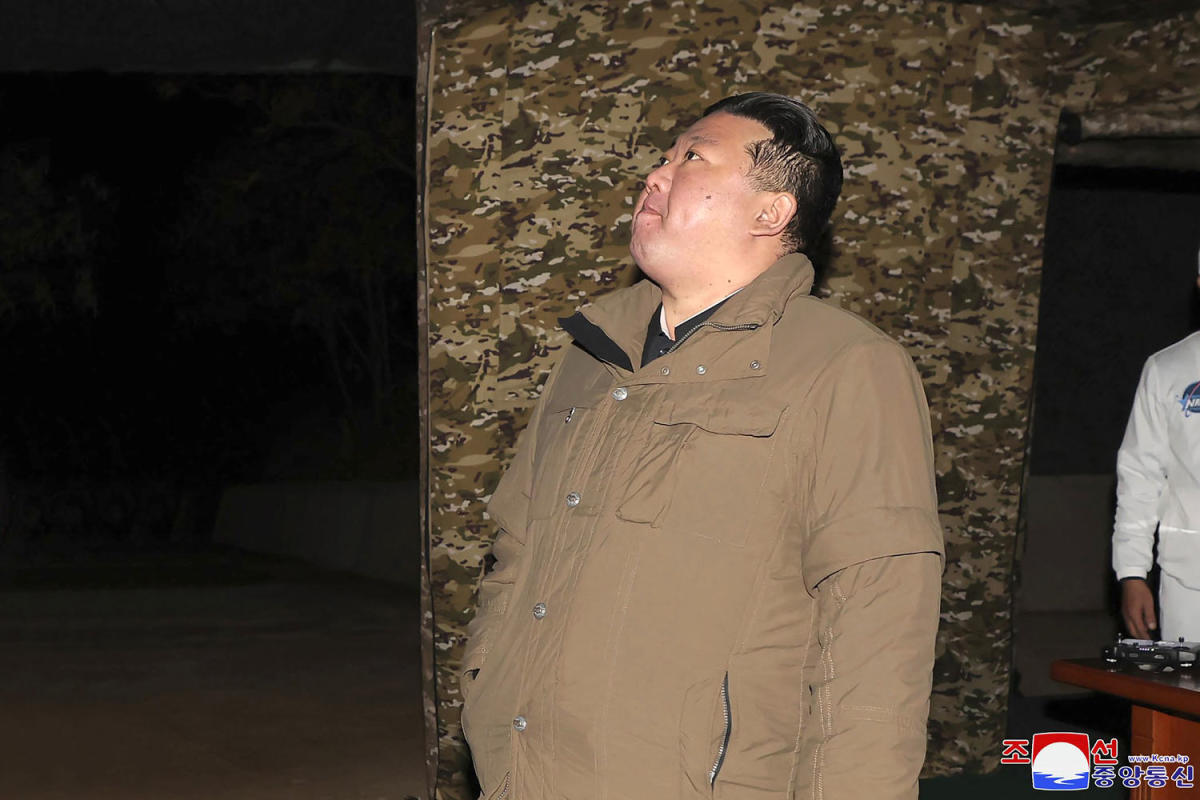SEOUL, South Korea — South Korea took steps on Wednesday to suspend parts of a 2018 military agreement with North Korea after North Korea defied warnings from the U.S. and its allies with what it claimed to be the successful launch of its first spy satellite.
According to KCNA, the North Korean state news agency, North Korea launched the Malligyong-1 satellite on a Chollima-1 rocket from the Sohae facility on its west coast at 10:42 p.m. Tuesday (8:42 a.m. ET). KCNA reported that the rocket flew normally and the satellite entered orbit at 10:54 p.m., however, the success of the launch remains unverified.
Photographs published by state media appeared to show North Korean leader Kim Jong Un overseeing the launch, which was earlier reported by South Korea and Japan.
Despite these claims, Japan’s Chief Cabinet Secretary Hirokazu Matsuno stated that no satellites had been confirmed to have entered Earth’s orbit and that the Defense Ministry was still analyzing details.
North Korea notified Japan that it would launch the satellite, its third attempt this year, after two earlier failures, between Wednesday and Dec. 1. North Korea has stated its “sovereign right” to develop spy satellites and other technologies as a means of self-defense.
The U.S., South Korea, and Japan have strongly condemned North Korea’s latest launch, citing violations of United Nations Security Council resolutions. National Security Council spokesperson Adrienne Watson stated, “It raises tensions and risks destabilizing the security situation in the region and beyond.”
South Korea has responded by suspending parts of a 2018 agreement intended to reduce tensions between the two Koreas, according to an official spokesperson for President Yoon Suk Yeol.
Another agreement, known as the Comprehensive Military Agreement, signed in Pyongyang in 2018, aimed to suspend live-fire exercises, impose no-fly zones, and curtail surveillance, among other measures. However, South Korea plans to restore reconnaissance and surveillance activities around the military demarcation line that separates the North and South, known as the Demilitarized Zone.
According to Prime Minister Han Duck-soo, restoring reconnaissance and surveillance activities is “a measure vital for our national security.” South Korea also plans to launch its own spy satellite on November 30. However, North Korea’s actions have been seen as a challenge to both South Korea and its allies.
The potential involvement of Russia in assisting North Korea with the launch of the spy satellite has alarmed the U.S., South Korea, and Japan, and has caused these three countries to expand security ties, emphasizing the urgency to address North Korea’s threats. Both officials and leaders have condemned the recent escalation, emphasizing the need for enhanced security measures in the region.
During a visit to Seoul, South Korea, Defense Secretary Lloyd Austin and his South Korean and Japanese counterparts agreed to share real-time data on North Korean missile launches starting in December, indicating a growing collaboration to address the threat posed by North Korea.
The arrival of the U.S. aircraft carrier Carl Vinson in the South Korean city of Busan further emphasizes the coordinated response of the U.S. and its allies to the North’s nuclear and missile programs.
Stella Kim reported from Seoul, South Korea, Arata Yamamoto from Tokyo, and Jennifer Jett from Hong Kong.
This article was originally published on NBCNews.com


